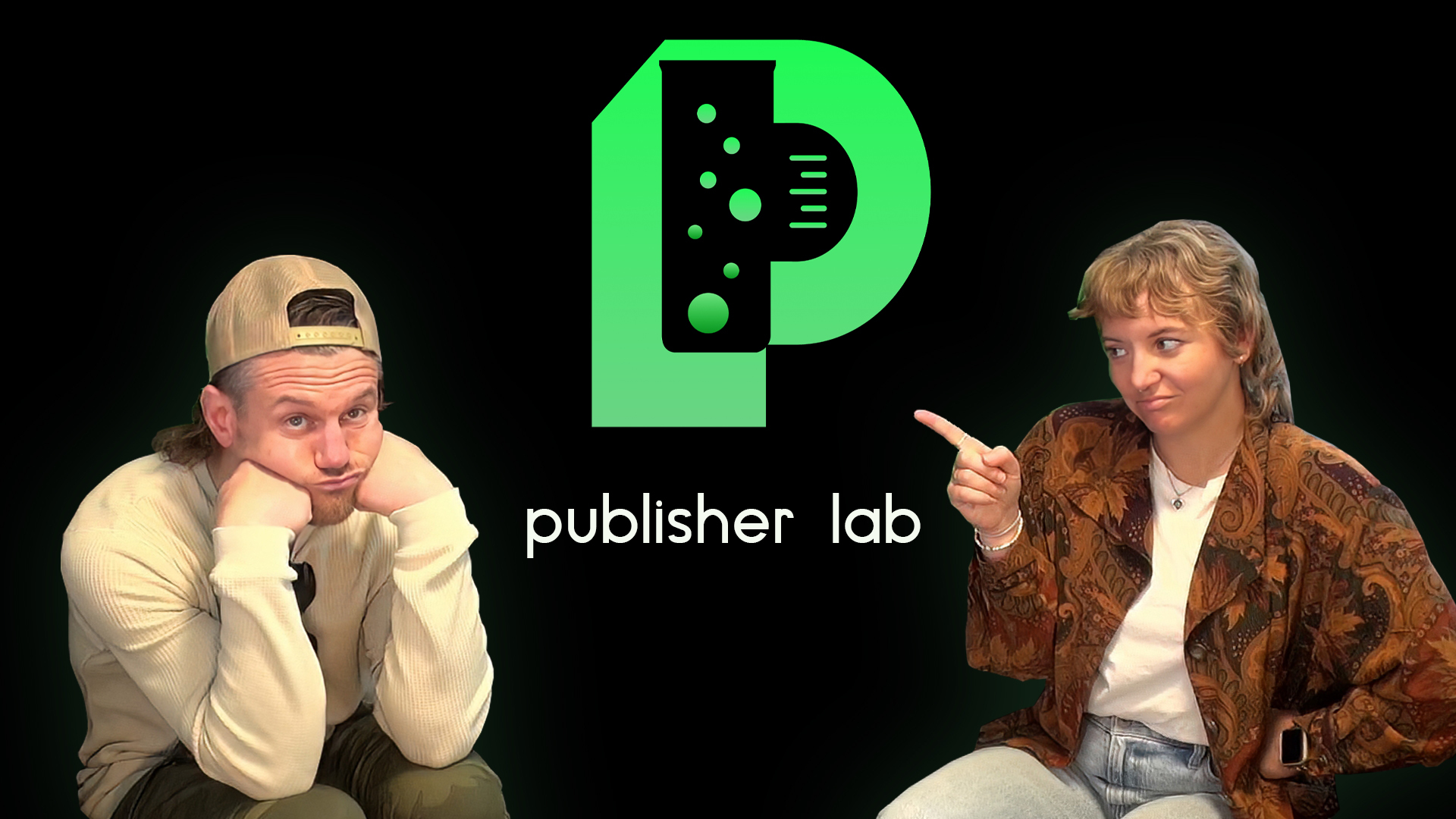
The Publisher Lab: Google tests privacy-focused tech, copyright for AI content, and Google planning new search engine
Get helpful updates in your inbox
This week on the Publisher Lab, Tyler Bishop and Whitney Wright get into Google’s lackluster privacy tech as an alternative to third-party cookies. They also discuss who should be credited—or responsible—for AI-generated content, all about Google’s new AI search engine, and upcoming changes to Google Search.
Watch this episode on our YouTube channel or listen to it wherever you get podcasts.
Google Ads’ new privacy tech is mediocre
Google has long been working on a replacement for third-party cookies. On Tuesday, April 18, Google’s third-party ad tech released a report on an experiment that included a test of Chrome Privacy Sandbox proposals and Google’s privacy-focused ad tools. Instead of using online tracking data, Google has been working on interest-based audience products.
However, the trial was only five weeks long and only ran in Chrome across display campaigns. Additionally, though Google Ads didn’t use third-party cookies for targeting purposes, it still used them for attribution, retargeting, and frequency capping.
If you’re curious what a third-party cookieless world would be like, just take a look at Safari; they haven’t had third-party cookies in years.
While Google has been working on a solution for some time, it keeps pushing out the date when third-party cookies will become obsolete, and it’s no accident that it appears like it’s in the interest of others. For now, it seems Google is mostly focused on AI, and it may be waiting until things become more clear regarding how AI is integrated into everything until it releases an official solution to third-party cookies.
If the new privacy tech was a priority, it would likely already be finished. This likely means it has a lot of laws that need to be worked out or there isn’t a ton of effort being made to move this initiative forward. With Google’s recent focus on AI, it’s likely that privacy tech is more of a back-burner project.
Who gets the credit for AI-generated content?
ChatGPT and generative AI have the ability to create incredible things that appear to have been made by a human. However, that then begs the question—who does the content belong to? If an AI chatbot created something based on copyrighted work, is that legal? How do you even determine if it used something as inspiration or copied something?
When considering what is plagiarized or copied and what isn’t, it’s likely that only flagrant and obvious instances will find their way into courtrooms, because it’s extremely difficult—if not impossible—to find what sources AI used to generate something. If generative AI copies something illegally, though, who is responsible?
Likely, whoever brings that AI-generated content into real-world applications will be implicated in litigious situations.
Google’s new AI search engine and updates to Google Search
Google is currently working on a new, AI-centered search engine while simultaneously adding new AI-based features to its current search engine in a project nicknamed Project Magi.
The new AI search engine would learn what users want to know based on their current or previous searches and would also offer lists of preselected options for things to buy or information to research. The experience would be more like talking to a person. The project is in its early stages and has no release date
Project Magi, the new updates to the current Google Search, is being worked on by 160 Googlers and is mostly kept under wraps. The new Google Search may be released as early as next month to a subset of users.
It’s likely Google’s big concern isn’t about losing ad money but about losing one particular element of their revenue, which is people ‘shopping around.’ Right now, people will research products with a search engine and then use that search engine to buy the product. With ChatGPT and generative AI, which can answer basic questions, and then the prominence of Amazon, who is great at suggesting items to buy and allows you to subscribe to purchasing certain items, Google risks losing the traffic associated with shopping. It’s likely their new AI search engine will incorporate features and operate in such a way that makes up for these shifting shopping behavior.
Affiliate marketing may be a riskier business in the future with these changes, especially if someone isn’t known as ‘an influencer.’
Google has been working on AI and Large Language Models (LLM) for over a decade, so whatever they have up their sleeve, they’re being very coy about it, which may not be the right strategy.
Leave us a comment!
Head to PublisherLab.org and leave us a comment, complaint, compliment, or question! You can also find all of our episodes on the page. Check out our YouTube channel if you would like to watch the podcast instead.
Whitney is a former journalist for numerous city-wide newspapers and online media sources and an accomplished digital and creative marketer. She has multiple years of digital publishing expertise and contributes regularly to all of Ezoic's content sources.
Featured Content
Checkout this popular and trending content

Ranking In Universal Search Results: Video Is The Secret
See how Flickify can become the ultimate SEO hack for sites missing out on rankings because of a lack of video.
Announcement

Ezoic Edge: The Fastest Way To Load Pages. Period.
Ezoic announces an industry-first edge content delivery network for websites and creators; bringing the fastest pages on the web to Ezoic publishers.
Launch

Ezoic Unveils New Enterprise Program: Empowering Creators to Scale and Succeed
Ezoic recently announced a higher level designed for publishers that have reached that ultimate stage of growth. See what it means for Ezoic users.
Announcement
